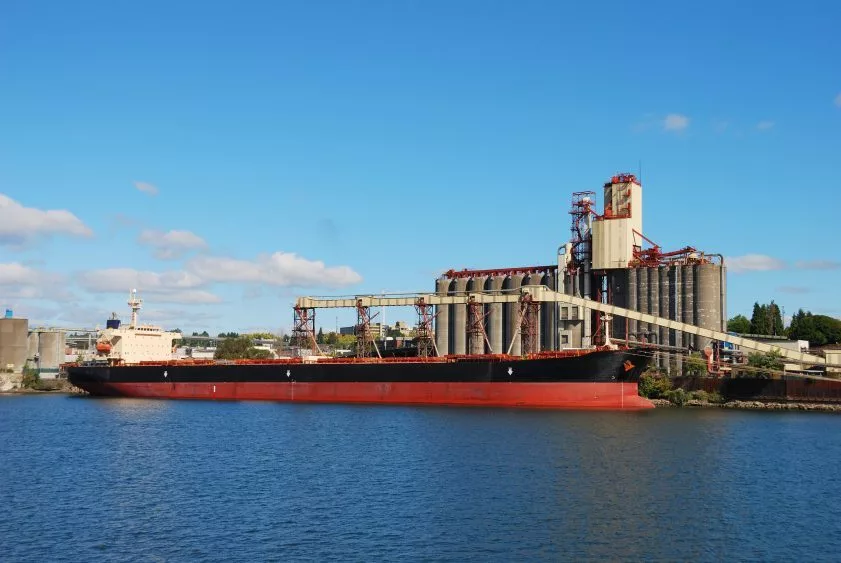WASHINGTON D.C. – On Thursday, the U.S. Trade Representative (USTR) took targeted action to restore American shipbuilding and address China’s unreasonable acts, policies, and practices to dominate the maritime, logistics, and shipbuilding sectors. These responsive actions come after a year-long Section 301 investigation, which included USTR convening a two-day public hearing, receiving nearly 600 public comments, and consulting with government agency experts and USTR cleared advisors.
“Ships and shipping are vital to American economic security and the free flow of commerce,” said USTR Ambassador Jamieson Greer. “The Trump administration’s actions will begin to reverse Chinese dominance, address threats to the U.S. supply chain, and send a demand signal for U.S.-built ships.”
These actions balance the need for action and the importance of limiting disruption for U.S. exporters. They will occur in two phases:
For the first 180 days the applicable fees will be set at $0.
(1) In the first phase, after 180 days:
- Fees on vessel owners and operators of China based on net tonnage per U.S. voyage, increasing incrementally over the following years;
- Fees on operators of Chinese-built ships based on net tonnage or containers, increasing incrementally over the following years; and
- To incentivize U.S.-built car carrier vessels, fees on foreign-built car carrier vessels based on their capacity.
(2) The second phase actions will not take place for 3 years:
- To incentivize U.S.-built liquified natural gas (LNG) vessels, limited restrictions on transporting LNG via foreign vessels. These restrictions will increase incrementally over 22 years.
Susan Stroud, founder and analyst with No Bull Ag, commented on X that the news from USTR is “MUCH better for bulk ag exports than initially expected.” Stroud indicated in her social media post a key highlight included bulk vessels under 80,000 DWT (deadweight tonnage) are excluded from fees. For context, many ag commodities travel on Panamax ships which are around 75,000 DWT.
In addition, USTR is seeking public comments on the proposed tariffs on ship-to-shore cranes and other cargo handling equipment, in line with the President’s Maritime Executive Order. To view the Federal Register Notice, click here. The deadline to submit a request to appear at the hearing is May 8, 2025. Comments in response to this notice can be submitted or accessed here.
U.S. Senator Roger Marshall, M.D. (R-Kansas) released the following statement in response to U.S. Trade Representative (USTR) Jamieson Greer announcing actions to restore American shipbuilding and address China’s unreasonable acts to dominate the maritime, logistics, and shipbuilding industries. “Thanks to President Trump and U.S. Trade Representative Jamieson Greer for putting America first by placing industry-friendly service fees on Chinese-manufactured ships that carry U.S. farm commodities,” said Senator Marshall. “China has dominated global shipping fleets for too long. This move protects American agriculture, boosts domestic shipbuilding, and strengthens our national security.”
U.S. Wheat Associates (USW) and the National Association of Wheat Growers (NAWG) extended thanks to the Office of the U.S. Trade Representative (USTR) for targeting the proposed Section 301 actions regarding Chinese maritime practices in ways that protect U.S. farm commodity export competitiveness.
“This move means a lot to farmers and customers around the world,” said USW Chairman Clark Hamilton, a wheat farmer from Ririe, Idaho. “We want to thank them for their efforts to balance the need for action against these Chinese maritime practices with the potential for harm to our export competitiveness.”
The U.S. wheat industry and its customers depend on ocean-going vessels, especially dry bulk carriers, and exports are vital to this sector. About half of the U.S. wheat crop is exported each year. The reconsideration of the proposal, which would have significantly increased export costs for U.S. wheat, is a welcome relief for our industry.
“Ocean shipping is critical for U.S. wheat growers to move their crops to market, and this step helps maintain our global competitiveness,” said NAWG President Pat Clements.
The International Fresh Produce Association (IFPA) issued the following statement after the U.S. Trade Representative (USTR) announced its decision to implement a new fee structure under the Section 301 investigation into China’s maritime, logistics, and shipbuilding sectors.
IFPA said in its statement that “While the USTR’s actions may affect agricultural and perishable products, we appreciate that the revised fee structure appears to take several concerns unique to the agricultural sector into account. Throughout this process, IFPA has worked diligently to ensure that the voices of the fresh produce and floral industries were heard. Alongside more than 300 business and trade organizations, we highlighted the unique vulnerabilities of our sector—particularly the reliance on global shipping routes and the time-sensitive nature of perishable goods. IFPA remains committed to supporting fair and effective trade enforcement that strengthens U.S. maritime interests without burdening American agriculture. We will continue to engage with the administration, Congress, and our industry partners to promote policies that enable a resilient, efficient, and competitive trade environment.”
According to the Office of the USTR, the United States only accounts for 0.1% of global shipbuilding while China produces more than the rest of the world combined.
SOURCES: USTR Press Release, Senator Marshall Press Release, USW Press Release, IFPA Press Release, Susan Stroud X account
